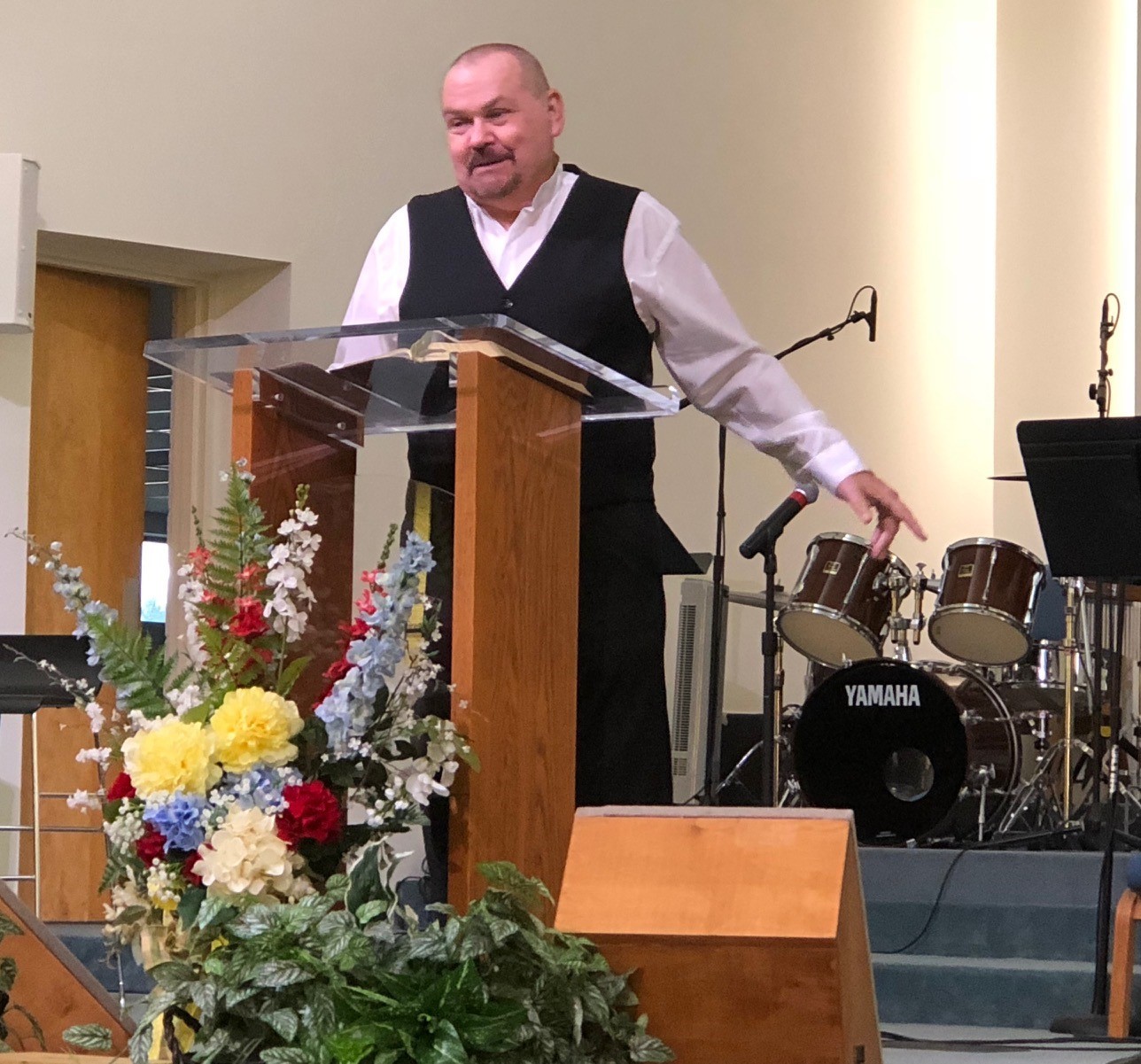
WESTWOOD, Ky. (BP) — Two years ago pastor Mike Rice was approached by two women members of the church he leads about placing a defibrillator in the building.
 “We had a senior deacon who had some episodes,” Rice said. “But I sure never knew I’d be the first one to need it.”
“We had a senior deacon who had some episodes,” Rice said. “But I sure never knew I’d be the first one to need it.”
Two months after his heart stopped while he was behind the pulpit, the 66-year-old pastor was preaching again on Sunday morning, Aug. 12.
He said if it wasn’t for the defibrillator, some medical personnel in the congregation and the volunteer fire department’s quick action, his last sermon would have been June 10.
That’s the evening that Rice collapsed while ending his sermon. Although he had bypass surgery in 2003 and has been diagnosed with heart disease, Rice didn’t have a heart attack. His heart just stopped beating and so did his breathing.
In a matter of seconds, several rushed to the stage at Fairview Baptist Church in Westwood, Ky., including physician Ish Stevens who was at the pastor’s side with the machine, or AED, that was purchased two years ago.
“Ish said I was finishing up [the sermon],” Rice said. “I don’t remember. All I know is what I was told.”
Stevens, who first thought the diabetic Rice had blacked out because of low sugar, administered the machine to the pastor. Jo Cathey, a nurse in the hospital cardiology department in nearby Ashland, also was quickly on the scene.
“When she saw me, she said, ‘He’s gone. I’ve seen this before,'” Rice said.
Stevens shocked Rice’s heart — “I slapped it on him and gave him a jolt. He flopped like a fish” — and the volunteer fire department, which was across the street and doing some training, rushed over and used an apparatus that assisted in getting him breathing again. But he had gone nearly eight minutes without oxygen.
“Three minutes can cause brain damage,” Rice said.
The pastor was rushed to intensive care in Ashland where he was put on a ventilator after his body temperature was lowered with a “deep freeze.”
It was touch and go for several days and few thought he would survive. His family — wife Lisa, daughter Elisha and son Seth — never left his side. Elisha, who lives in Michigan, gave daily and sometimes twice daily updates on Facebook.
“She was optimistic the whole time,” Rice said. “Elisha was perfect for that [updating Facebook]” as Fairview members and the entire community prayed for the pastor’s recovery from the heart stoppage and a bout with pneumonia.
Last Sunday, Rice thanked the church — and many others — who had prayed for him. They also recognized the volunteer fire department and medical personnel in the service.
“I’m still hearing from people in the community and most of them never met me,” Rice said. “The postal carrier stopped me and said he was praying for me. A lady in a restaurant said she was following it on Facebook. Every day I meet someone who prayed for me.”
Doctors who looked at his charts call him “a miracle” because it’s unexplainable how he could have lived through it without brain damage. When he was beginning to come around, the neurologist called his name. “He said ‘Michael’ and my eyes opened,” Rice recounted. “They said that was a good sign [of no brain damage].
“They say, ‘This is not explainable,'” but Rice said he can explain it: God has more for him to do.
Rice said he would preach only the second morning service for the foreseeable future. Several within the church will fill in as will some from the Kentucky Baptist Convention’s consultant pool.
The pastor said his new testimony has already impacted many who watched as the “miracle” left the hospital.
“People saw the church in a different way, a positive way, as they rallied around me,” Rice said. “What they saw impressed them. Some of the nurses at [the hospital] talked about how my life and how everybody responded touched them and how they were challenged to get back in church.”
The church is already purchasing another defibrillator for its new multi-purpose building.
“They’re really not that expensive, about $2,000, and you never know who’s going to need it,” Rice said.
Stevens said every church or every place that has a public gathering should have a defibrillator. “They’re very easy to use and some of them are even automated,” he said. “It may have saved his life.”















